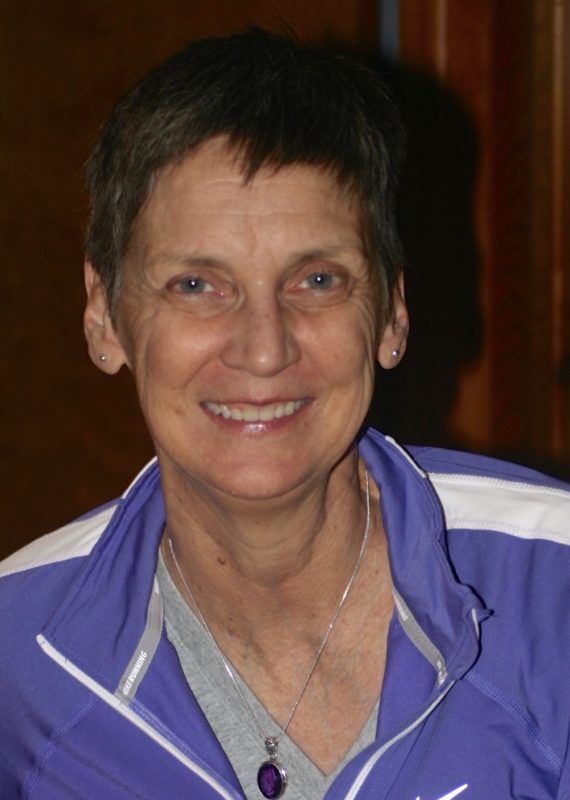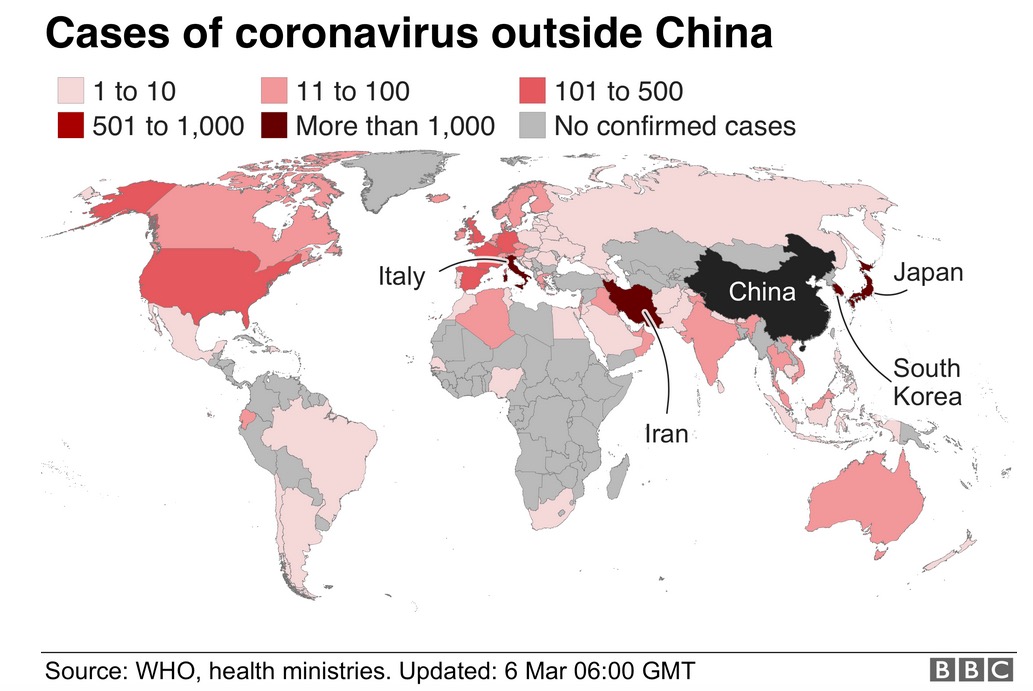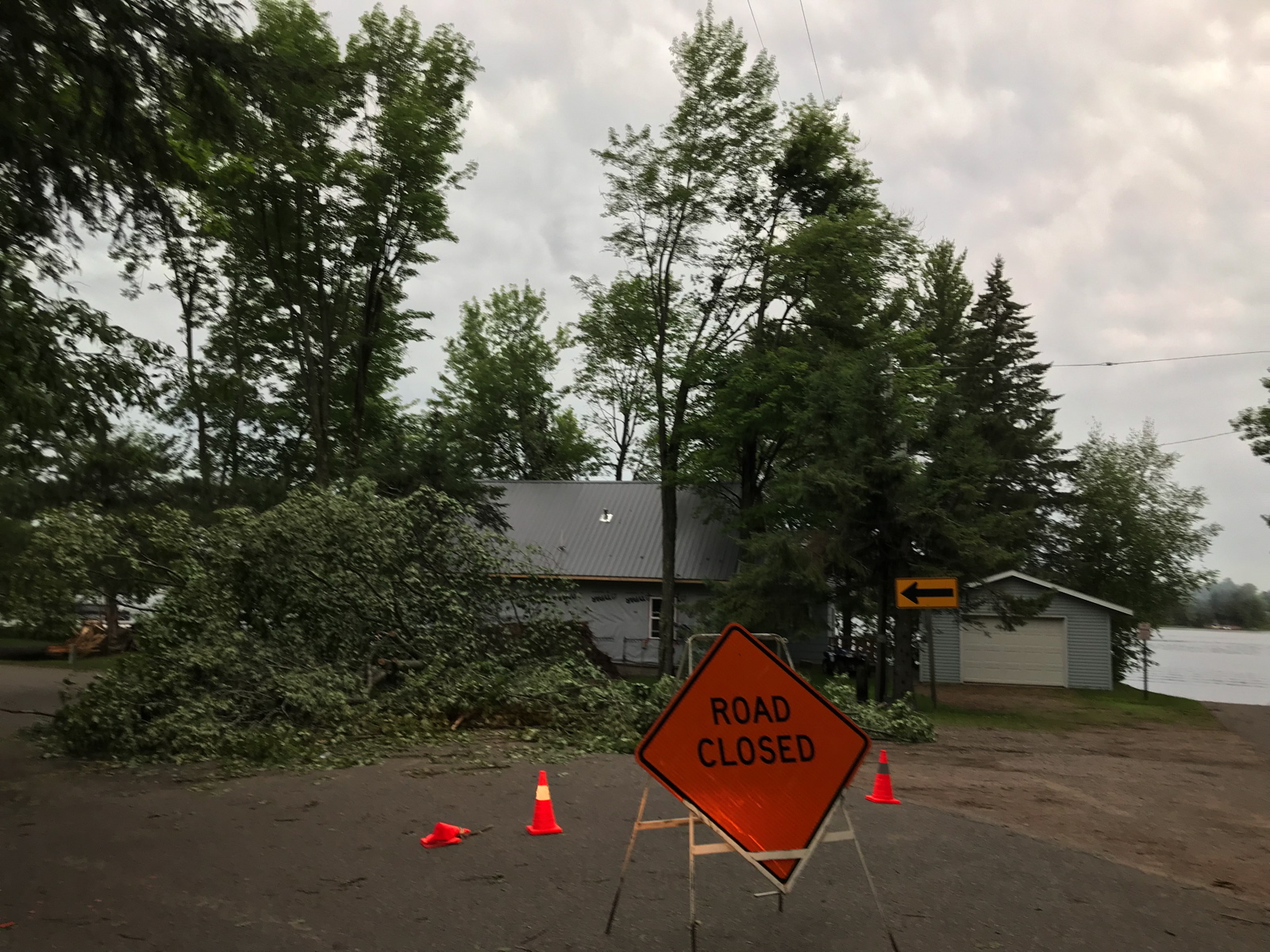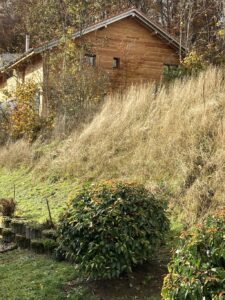 We officially moved a month ago, but we keep having to relocate within our walls. We continue to rotate tables, chairs, dishes, books and clothes from place to place, so builders can replace broken fixtures and access faucets covered by dry wall.
We officially moved a month ago, but we keep having to relocate within our walls. We continue to rotate tables, chairs, dishes, books and clothes from place to place, so builders can replace broken fixtures and access faucets covered by dry wall.
Instead of looking for Waldo, the cartoon character hidden in a crowd of people on the pages of “Where’s Waldo?” books, we hunt for the little artisan and mistakes concealed in our house!
From the get-go, an incompetent project manager created chaos, then made it worse by jumbling the order of jobs to be completed by subcontractors. For example, the dirt road up the steep incline to our building cannot be black topped until heavy trucks deliver boulders to construct the back wall.
The master bedroom had only 1 outlet because the dry wall person covered the others. For the electrician to access the wall to drill for a line, we had to move our furniture and belongings. Again.
The plumbers installed bathroom fixtures; water flowed into the pipes, but they forgot the shower doors. If we take a shower, we flood the bathroom! Water from the sink leaks into the vanity drawers. Cabinets had to be emptied again, so that electricians could separate wires between the overhead and the mirror light, which went on and off simultaneous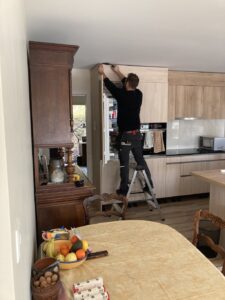 ly.
ly.
In the meantime, new crews of craftsmen traipse in and out, drilling, dry walling, painting, plastering and pounding in an attempt to fix everything that was done wrong the first time around.
Our unfinished front terrace, built over the garage, has flooded, the outside stairs go nowhere near our door, and the retaining wall has not been started. Some walls slant; doors don’t close. Tile had to be ripped out to install electrical wiring. A workman chipped the sink mirror that had been moved umpteen times to access the wall for repairs. Fortunately, Gerald noticed the break when the new project manager was on site, so he reordered a mirror, along with shower stalls, remote controls and broken window replacements.
On a positive note, workers systematically remove shoes at the door and clean their work area. Naturlich, tidiness is a Swiss trademark. However, they still leave behind a trail of drywall dust, sanding dust, and other airborne particles.
Though gains have been made to the interior, our exterior premises should post warnings — attention toxic debris, danger falling rocks, beware avalanche risk.
And who ever heard of a new home with “provisional utilities?” (including heating and plumbing). Our room temperature fluctuates anywhere between 45 and 90 degrees.
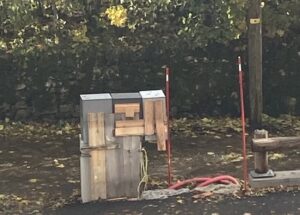
provisional mailboxes
We also have a “temporary” mailbox - a leaky, tin box stuck on a post that vehicles keep hitting.
And what exactly is our new address?
We have an alphabet soup house identification. Originally, our building was designated number 1. Numbers 2 and 3 were attributed to the buildings below us. Then architects switched the timetable constructing our home last changing our building from number 1 to 3.
To complicate matters, the postal service labeled our complex as “3" to identify the street number. To distinguish the nine family dwellings, we became 3a, 3b, 3c… d, e, f, g, h, and i. After several calls, the Swiss national phone service discovered, “Aha! Your optic fiber line was connected to the 3 i, instead of 3 c.”
To add to the mess, it has rained for 40 days and 40 nights.
We are considering moving again.
Noah’s ark here we come!
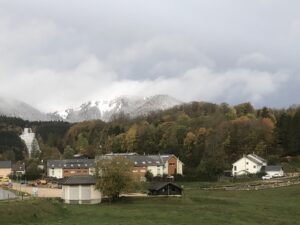
a view from our neighborhood
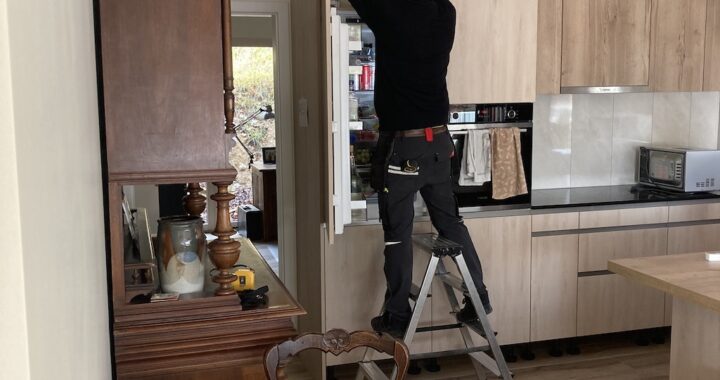
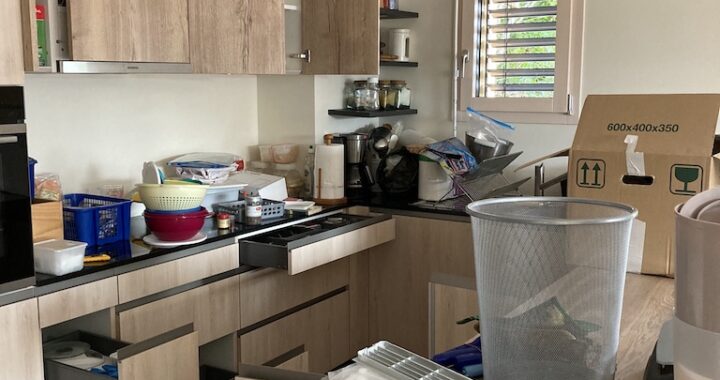
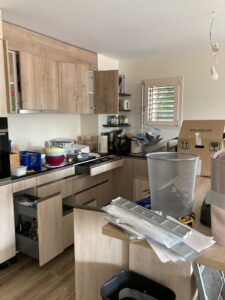 Everyone has a crazy moving house story to share, but can you top this?Changing a domicile, never easy in the best circumstances, becomes an even greater challenge when unforeseen complications arise.
Everyone has a crazy moving house story to share, but can you top this?Changing a domicile, never easy in the best circumstances, becomes an even greater challenge when unforeseen complications arise.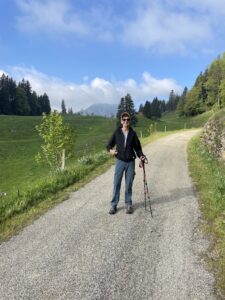 As the move-in date approached, our anxiety increased. To de-stress, a few days before moving day, I walked our usual trail next to our Airbnb. The path wound through the woods, then down a steep slope to the train track. Ba-da boom! Whoosh! My feet slipped out from under me; I landed smack on my tailbone, walking sticks flying.
As the move-in date approached, our anxiety increased. To de-stress, a few days before moving day, I walked our usual trail next to our Airbnb. The path wound through the woods, then down a steep slope to the train track. Ba-da boom! Whoosh! My feet slipped out from under me; I landed smack on my tailbone, walking sticks flying.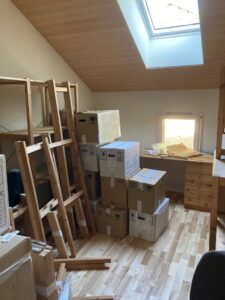
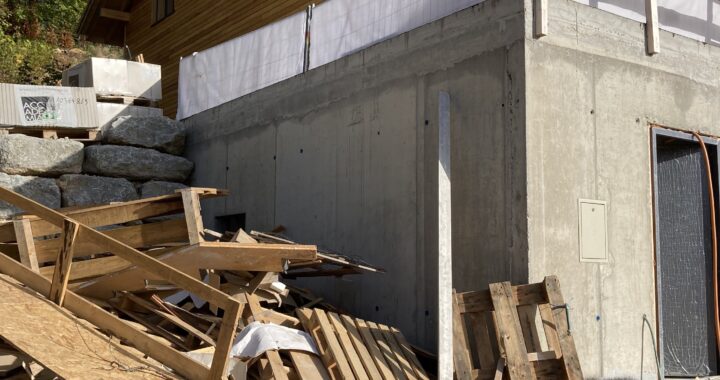
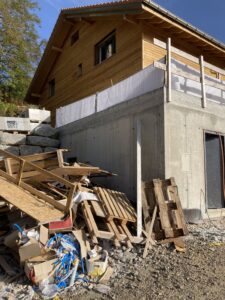 Over the decades, I adjusted to dozens of relocations between three foreign countries. From a cot in a German teammate’s apartment, to a studio flat in Paris, to a rustic chalet in Switzerland, “Where Ever I Lay My Hat (That’s My Home.)”
Over the decades, I adjusted to dozens of relocations between three foreign countries. From a cot in a German teammate’s apartment, to a studio flat in Paris, to a rustic chalet in Switzerland, “Where Ever I Lay My Hat (That’s My Home.)”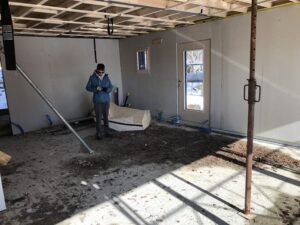 Our holiday was sublime, until mid September. Then our European neighbors-to-be sharing our building set up a zoom video call revealing our condo’s interior. Nothing was done inside since we left 3 months earlier. The only fixture in the shell of our house was a bathtub, now filled with worker’s cigarette stubs, empty bottles and other debris.
Our holiday was sublime, until mid September. Then our European neighbors-to-be sharing our building set up a zoom video call revealing our condo’s interior. Nothing was done inside since we left 3 months earlier. The only fixture in the shell of our house was a bathtub, now filled with worker’s cigarette stubs, empty bottles and other debris.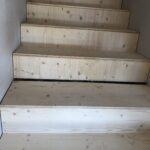 Builders undercut us on every corner trying to save money at our expense. The windows were too small to meet Swiss building requirements. The garage door was smaller than the frame. Insulation was half of what the code required. Plumbing in one bathroom was built outside the walls. The stairs were crooked. And the retaining wall to prevent the mountain from tumbling down on us hasn’t been started.
Builders undercut us on every corner trying to save money at our expense. The windows were too small to meet Swiss building requirements. The garage door was smaller than the frame. Insulation was half of what the code required. Plumbing in one bathroom was built outside the walls. The stairs were crooked. And the retaining wall to prevent the mountain from tumbling down on us hasn’t been started.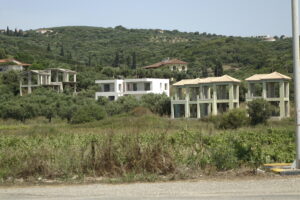 It could be worse. The Greek countryside is dotted with half-finished house frames without windows, doors, walls.
It could be worse. The Greek countryside is dotted with half-finished house frames without windows, doors, walls.